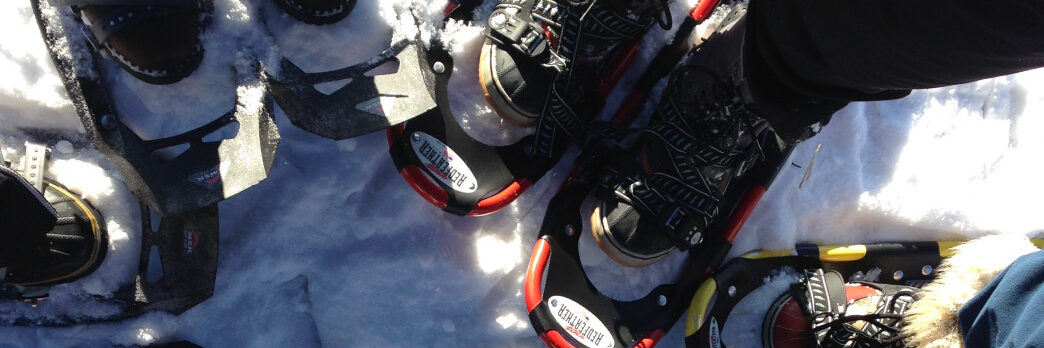How do you place God — holy healing Love — first? How do you care for yourself? How do you care for your neighbor? How do you love the home — creation — in which you and your neighbor abide? How do you love the un-loveable?
What are the edges of how and who you love? What are the limits of how you allow yourself to be loved in return?
Fire of love, crazy over what You have made. Oh, divine Madman. — Prayer of Catherine Siena
O you who’ve gone on pilgrimage – where are you, where, oh where?
Here, here is the Beloved! Oh come now, come, oh come!
Your friend, he is your neighbor, he is next to your wall –
You, erring in the desert – what air of love is this?
If you’d see the Beloved’s form without any form –
You are the house, the master, You are the Kaaba, you! . . .
Where is a bunch of roses, if you would be this garden?
Where, one soul’s pearly essence when you’re the Sea of God?
That’s true – and yet your troubles may turn to treasures rich –
How sad that you yourself veil the treasure that is yours!
— Rumi ‘I Am Wind, You are Fire’
Translation by Annemarie Schimmel
You can sit with us. You can live beside us.
You can play your music. You can listen to mine.
We can dance together. We can share our food.
We can keep an eye on each other’s kids.
We can teach each other new languages.
We can respect traditions. We can build new ones.
You can ask for a cup of sugar. You can ask for directions.
You can tell me when things are hard.
You can tell me when beautiful things happen.
We can listen to stories.
We can disagree. We can agree.
We can come to understandings …
― Elizabeth Tambascio (excerpt of poem)
Tikkun Olam: In Jewish teachings, any activity that improves the world, bringing it closer to the harmonious state for which it was created. Tikkun olamimplies that while the world is innately good, its Creator purposely left room for us to improve upon His work. All human activities are opportunities to fulfill this mission, and every human being can be involved in tikkun olam—child or adult, student or entrepreneur, industrialist or artist, caregiver or salesperson, political activist or environmentalist, or just another one of us struggling to keep afloat. — Chabad.org
Love & Care for Self
When you are compassionate with yourself, you trust in your soul, which you let guide your life. Your soul knows the geography of your destiny better than you do. – John O’Donohue
Taking care of yourself doesn’t mean me first, it means me too. – L.R. Knost
In dealing with those who are undergoing great suffering, if you feel “burnout” setting in, if you feel demoralized and exhausted, it is best, for the sake of everyone, to withdraw and restore yourself. The point is to have a long-term perspective. – Dalai Lama
And now that you don’t have to be perfect, you can be good. – John Steinbeck
Lighten up on yourself. No one is perfect. Gently accept your humanness. – Deborah Day
Of all the judgments we pass in life, none is more important than the judgment we pass on ourselves. – Nathaniel Branden
Self-discipline is self-caring. – M. Scott Peck
Caring for myself is not self-indulgence, it is self-preservation …– Audre Lorde
If your compassion does not include yourself, it is incomplete. – Jack Kornfield
People who love themselves come across as very loving, generous and kind; they express their self-confidence through humility, forgiveness and inclusiveness. – Sanaya Roman
When the well’s dry, we know the worth of water. – Benjamin Franklin
Almost everything will work again if you unplug it for a few minutes, including you. – Anne Lamott
Carve out and claim the time to care for yourself and kindle your own fire. – Amy Ippoliti
Anytime we can listen to true self and give the care it requires, we do it not only for ourselves, but for the many others whose lives we touch. – Parker J. Palmer
The perfect man of old looked after himself first before looking to help others. – Chuang Tzu
Self Care is the secret ingredient to Soldier care in a recipe that yields many servings of effective leadership. – Donavan Nelson Butler
Love Your Neighbor
You can be a follower of Muhammad or Jesus or Buddha or whomever. Always, they said that the most essential factor is to love your neighbor. And to love you. — Leo Buscaglia
Again and again I tell God I need help, and God says, ‘Well, isn’t that fabulous? Because I need help too. So you go get that old woman over there some water, and I’ll figure out what we’re going to do about your stuff.’ — Anne Lamott
You shall love your neighbor With your crooked heart, It says so much about love and brokenness — it’s perfect. ― John Green, Looking for Alaska
To be truly good means being a good neighbor. . . . And to be a good neighbor means recognizing that there are ultimately no strangers … Everybody is my neighbor!… Everybody is my brother! … We’re all connected. ― Brian D. McLaren
… teaches us to love ourselves in a wholesome manner by loving our neighbor. Indeed, even by loving our enemies – at least by trying to learn to love them, and by believing that it is right to do so. With grace this is possible. — Michael O’Brien
It’s very important to know the neighbor next door and the people down the street and the people in another race. — Maya Angelou
Sometimes a neighbor whom we have disliked a lifetime for his arrogance and conceit lets fall a single commonplace remark that shows us another side, another man, really; a man uncertain, and puzzled, and in the dark like ourselves. — Willa Cather
Spread love everywhere you go: First of all in your own house … let no one ever come to you without leaving better and happier. Be the living expression of God’s kindness; kindness in your face, kindness in your eyes, kindness in your smile, kindness. — Mother Teresa
“The first question which the priest and the Levite asked was: ‘If I stop to help this man, what will happen to me?’ But…the good Samaritan reversed the question: ‘If I do not stop to help this man, what will happen to him?” ― Martin Luther King Jr.
There are no ordinary people. You have never talked to a mere mortal … your neighbour is the holiest object presented to your senses … for in him also Christ ‘vere latitat’ – the glorifier and the glorified, Glory Himself, is truly hidden. ― C.S. Lewis, The Weight of Glory
To love our neighbor as ourselves is such a truth for regulating human society, that by that alone one might determine all the cases in social morality. — John Locke
The impersonal hand of government can never replace the helping hand of a neighbor. — Hubert H. Humphrey
When the worst finally happens, or almost happens, a kind of peace comes. I had passed beyond grief, beyond terror, all but beyond hope, and it was thee, in that wilderness, that for the first time in my life I caught sight of something of what it must be like to love God truly. It was only a glimpse, but it was like stumbling on fresh water in the desert, like remembering something so huge and extraordinary that my memory had been unable to contain it. Though God was nowhere to be clearly seen, nowhere to be clearly heard, I had to be near him—even in the elevator riding up to her floor, even walking down the corridor to the one door among all those doors that had her name taped on it. I loved him because there was nothing else left. I loved him because he seemed to have made himself as helpless in his might as I was in my helplessness. I loved him not so much in spite of there being nothing in it for me but almost because there was nothing in it for me. For the first time in my life, there in that wilderness, I caught a glimpse of what it must be like to love God truly, for his own sake, to love him no matter what. If I loved him with less than all my heart, soul, and will, I loved him with at least as much of them as I had left for loving anything…I did not love God, God knows, because I was some sort of saint or hero. I did not love him because I suddenly saw the light (there was almost no light at all) or because I hoped by loving him to persuade him to heal the young woman I loved. I loved him because I couldn’t help myself. I loved him because the one who commands us to love is the one who also empowers us to love, as there in the wilderness of that dark and terrible time I was, through no doing of my own, empowered to love him at least a little, at least enough to survive. And in the midst of it, these small things happened that were as big as heaven and earth because through them a hope beyond hopelessness happened. “O Israel, hope in the Lord from this time forth and for evermore.”…
The final secret, I think, is this: that the words “You shall love the Lord your God” become in the end less a command than a promise.”
Love of God is not a thing which we produce in ourselves by excessive brooding or by self-hypnotism or by any other method. It is a permanent flame, slowly burning in the caverns of all our hearts. […] The basis of all religions is this love of God. For if this love of God were not vital to us, all that the great prophets have been trying to preach would have been unreal and futile. If it were not a real experience which in some sense is shared by us all, an experience which ennobles us and raises us far above the selfish pettinesses of life, no prophet and no religious deed would be able to appeal to our higher natures and establish the claims of religion. ― Surendranath Dasgupta, Hindu MysticismA necessary condition for interior peace, then, is what we might call goodwill. We could also call it purity of heart. It is the stable and constant disposition of a person who is determined more than anything to love God, who desires sincerely to prefer in all circumstances the will of God to his own, who does not wish to consciously refuse anything to God. ― Jacques Philippe, Searching for and Maintaining Peace: A Small Treatise on Peace of Heart
… the test case for love of God is love of neighbour. The test case for love of neighbour is love of enemy. Therefore, to the extent we love neighbour and enemy, to that extent we love God. And to the extent we fail to love neighbour and enemy, we fail to love God. “Love” (agapao) is … action verb that constantly reaches out to embrace as friends, draw a circle of inclusion around neighbour and enemy (agape is the noun form, almost invariably referencing God’s unconditional love …). Therefore, the ultimate theological bottom line is: God is all-inclusive love. Period. ― Wayne Northey

